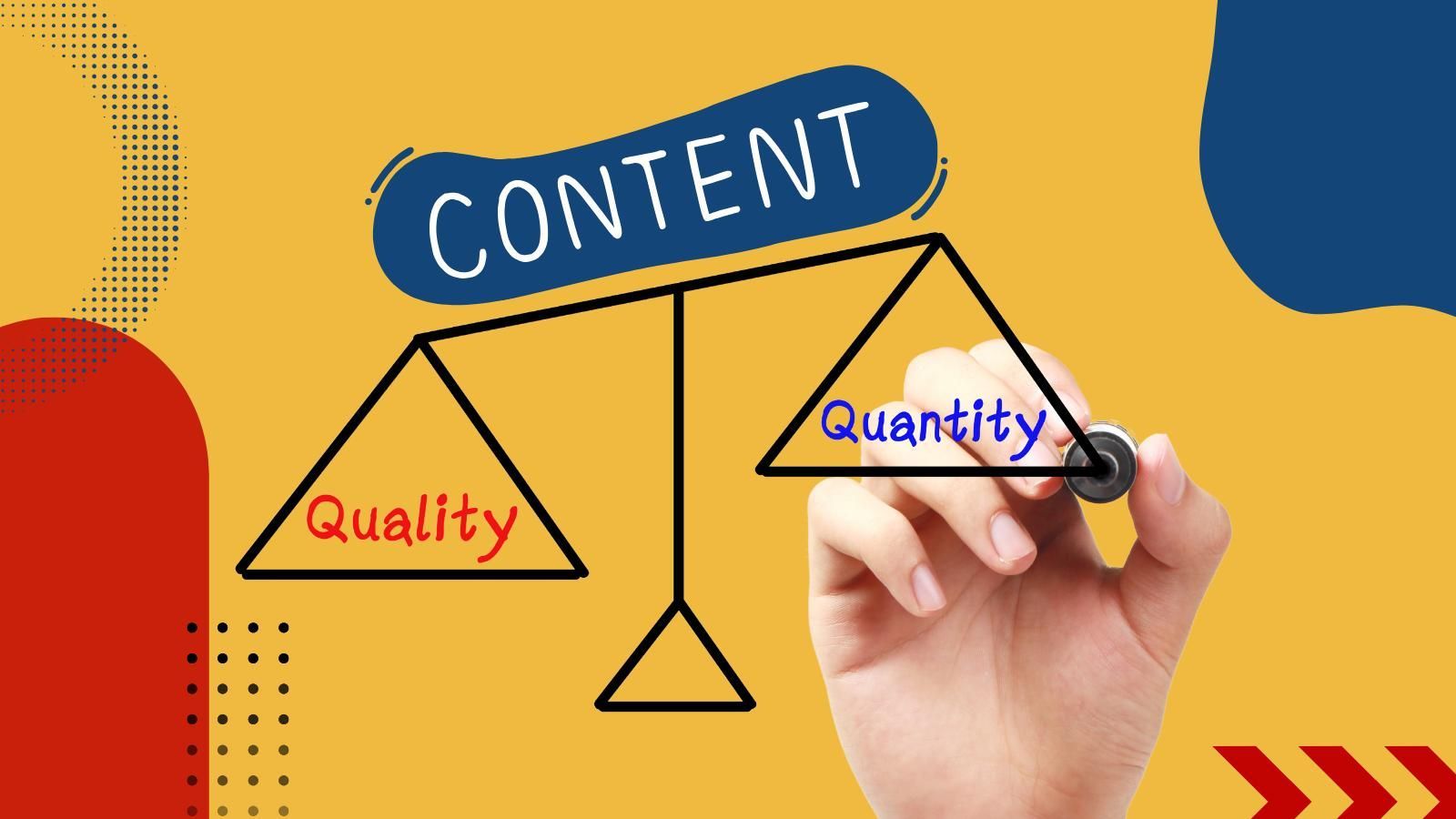Quality Over Quantity: Insights to Google’s Recent SEO Guidelines

Google algorithm updates are constantly evolving. As of March 2024, Google has changed its SEO algorithms to prioritize quality content over quantity. Readers wanting quality are scrolling past vast amounts of fluffy content stuffed with keywords. Google has introduced measures enhancing the overall quality of content appearing in search results, with a notable emphasis on reducing low-quality, unoriginal content by 40%. If you are unaware of Google’s recent SEO guidelines, you could experience a significant drop in your search engine rankings.
Continuously pushing low-quality content can lead to mistrust and loss of authority with your audience. This post will guide you through:
Overview of Google’s Updated SEO Policy
Google is the pioneer in internet search quality. This latest algorithm update continues Google’s focus on quality content with (SERP) search engine results page. The update includes:
- Advanced evaluation techniques: Advanced algorithms to assess content quality more rigorously, pushing creators to focus on value-driven content.
- Reduction of Span: Implementing stringent spam policies targeted at site reputation manipulation and expired domain abuse.
Clearly, Google emphasizes quality content over quantity and is cracking down on automated, low-quality content creation with the above objectives.

Impact of Google’s Algorithm Updates on SEO Practices
Creators must invest in content quality and originality to meet Google’s core updates. Websites will be rigorously checked, which could lead to penalties for not complying with the new standards. To be successful, marketers must emphasize value and user engagement rather than mere SEO optimization.
The new core update poses challenges, but marketers will appreciate the long-term benefits:
- Enhanced User Experience: Customers will enjoy higher search results and a more informed online experience.
- Greater Rewards: Content creators who invest time and effort in producing unique and valuable content will be rewarded with higher visibility and greater monetization opportunities.
- Requires Ethical SEO Strategies: Google’s new SEO guidelines will make it difficult for marketers to manipulate the system for higher results.
The impact of Google’s algorithm updates benefits conscientious creators and customers who demand reliable content.
Compliance Strategies for Google’s New SEO Guidelines
Content creators and marketers who adapt to these changes will tremendously benefit your online presence. Align your practices with Google’s new policies when you:
- Focus on High-Quality, Original Content: Offer in-depth, well-researched articles that provide true value to your readers. Thankfully, there are tools and techniques content writers can leverage to comply with Google’s updated standards. These tools are Grammarly, Hemingway Editor, Yoast SEO, Copyscape, and much more. Content creators can also use tools like the Felsch Reading Ease score to ensure content is accessible to a broader audience. Reach for a score that matches the reading level of your audience. Collecting and analyzing user feedback through comments, surveys, and social media interactions is helpful. Implement different styles to see what best resonates with your audience, using data-driven decisions to refine content strategy – known as A/B Testing. Regularly review and update existing content to keep it fresh and relevant.
- Avoid Shortcuts: Avoid keyword stuffing or using expired domains for artificial ranking boosts.
- Monitor Your Website Often: Check your site for SEO compliance and adjust as needed to comply with Google’s guidelines.
Role of Automation in Content Creation
The responsible use of the automation tools mentioned above helps creators manage content efficiently, maintain consistency across content, and optimize material for better engagement and search engine rankings.
It is now risky (and unethical) to rephrase existing content by replacing words or phrases with synonyms. Google’s new algorithms will recognize this content and flag it as low-quality. Programs that produce content based on minimal input without human oversight will be ranked lower or deindexed.
Ethical automation practices include using AI to suggest improvements for drafts and synonyms and fixing grammar and sentence structure. Using data analysis to tailor your content strategy is also beneficial, as is using automation for repetitive tasks like posting schedules, social media updates, and email campaigns. Automation should be used to enhance and perfect human creativity, not to replace it.
Further Insights on Google’s Search Quality Goals for 2024
Google’s search engine 2024 goals are structured to uphold its mission of organizing the world’s information and making it easily accessible and useful. The 2024 updates implement sophisticated language processing capabilities to match search queries with reverent content even if exact keywords are not used. In addition, location and personalized search results will coordinate with queries. These core updates improve user experience by prioritizing quality content while reducing the visibility of low-quality content. Pages that keep users engaged are rewarded with greater accessibility. Practices like keyword stuffing, link schemes, and other manipulative SEO strategies are discouraged.
How Does Google Identify Low-Quality Content?
Technically, Google uses powerful plagiarism detection technologies that locate duplicated content across the web to identify poor content.
Poorly produced content is also identified with:
- Locating outdated content
- Keyword stuffing
- Detecting over-optimized content context beyond keyword matching
- Low click-through rates
- High bounce rates and low dwell times
- Links with irrelevant sites
- Unnatural link patterns
Google’s algorithm updates include qualitative metrics to decipher content depth and utility by detecting:
- Content that covers topics users are expecting
- Readability of content
- Credibility of content
- Website reputation
- User experience
The combined technical and qualitative metrics used in Google’s new updates ensure users receive useful information about their queries.
Adapting to the New SEO Landscape
Google’s new SEO updates penalize poor and unoriginal content, spam, and domain abuse. Content creators and marketers who adapt to the SEO landscape will benefit from delivering valuable, engaging, and informative content to their customers. Adapting the new guidelines requires conducting thorough audits, enhancing content quality, and staying current with the best SEO practices.
Need a Team Backed by Years of SEO Experience to Rank Your Website?
Contact DMI if you need to update your content strategy with Google’s 2024 updates. Our digital marketing team includes a full content writing staff in Kansas City, MO. Together, we can leverage Google’s updates to your advantage. Let’s experience the exhilaration of boosting your online presence with superior engagement and rankings together. Contact us today to get started.
